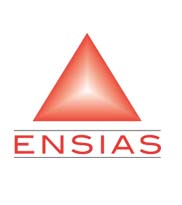- Accueil
-
L'Ecole
-
FORMATIONS
-
FORMATION INGENIEUR
-
Nouvelles filières offertes
- Ingénierie Intélligence Artificielle (2IA)
- Smart Supply Chain & Logistics (2SCL)
- Business Intelligence & Analytics (BI&A)
- Génie de la Data (GD)
- Génie Logiciel (GL)
- Ingénierie Digitale pour la Finance (IDF)
- Smart System Engineering (SSE)
- Data and Software Sciences (D2S)
- Cybersécurité, Cloud et Informatique Mobile (CSCC)
- REGLEMENT DES ETUDES DE L’ENSIAS CYCLE INGENIEUR
-
Nouvelles filières offertes
-
FORMATION INGENIEUR
- FORMATION CONTINUE
-
Recherche
- INTERNATIONAL
- ENTREPRISES
- VIE ESTUDIANTINE
- BIBLIOTHEQUE
LES DERNIÈRES INFORMATIONS
Assessing the impact of parameters tuning in ensemble based breast Cancer classification
| Titre | Assessing the impact of parameters tuning in ensemble based breast Cancer classification |
| Publication Type | Journal Article |
| Year of Publication | 2020 |
| Authors | Idri, A, Bouchra, EO, Hosni, M, Abnane, I |
| Journal | Health and Technology |
| Volume | 10 |
| Pagination | 1239-1255 |
| Mots-clés | accuracy, Article, Breast Cancer, cancer classification, classifier, decision tree, experimental design, grid search, human, multilayer perceptron, particle swarm optimization, recall, support vector machine |
| Abstract | Breast cancer is one of the major causes of death among women. Different decision support systems were proposed to assist oncologists to accurately diagnose their patients. These decision support systems mainly used classification techniques to categorize the diagnosis into Malign or Benign tumors. Given that no consensus has been reached on the classifier that can perform best in all circumstances, ensemble-based classification, which classifies patients by combining more than one single classification technique, has recently been investigated. In this paper, heterogeneous ensembles based on three well-known machine learning techniques (support vector machines, multilayer perceptron, and decision trees) were developed and evaluated by investigating the impact of parameter values of the ensemble members on classification performance. In particular, we investigate three parameters tuning techniques: Grid Search (GS), Particle Swarm Optimization (PSO) and the default parameters of the Weka Tool to evaluate whether setting ensemble parameters permits more accurate classification in breast cancer over four datasets obtained from the Machine Learning repository. The heterogeneous ensembles of this study were built using the majority voting technique as a combination rule. The overall results obtained suggest that: (1) Using GS or PSO techniques for single techniques provide more accurate classification; (2) In general, ensembles generate more accurate classification than their single techniques regardless of the optimization techniques used. (3) Heterogeneous ensembles based on optimized single classifiers generate better results than the Uniform Configuration of Weka (UC-WEKA) ensembles, and (4) PSO and GS slightly have the same impact on the performances of ensembles. © 2020, IUPESM and Springer-Verlag GmbH Germany, part of Springer Nature. |
| URL | https://www.scopus.com/inward/record.uri?eid=2-s2.0-85087361107&doi=10.1007%2fs12553-020-00453-2&partnerID=40&md5=7398903f3007d71e535b12c2ef9a90a6 |
| DOI | 10.1007/s12553-020-00453-2 |
Revues:
LIENS UTILES
Localisation
Contactez-nous
ENSIAS
 Avenue Mohammed Ben Abdallah Regragui, Madinat Al Irfane, BP 713, Agdal Rabat, Maroc
Avenue Mohammed Ben Abdallah Regragui, Madinat Al Irfane, BP 713, Agdal Rabat, Maroc
![]() Télécopie : (+212) 5 37 68 60 78
Télécopie : (+212) 5 37 68 60 78
![]() Secrétariat de direction : 06 61 48 10 97
Secrétariat de direction : 06 61 48 10 97
Secrétariat général : 06 61 34 09 27
Service des affaires financières : 06 61 44 76 79
Service des affaires estudiantines : 06 62 77 10 17 / n.mhirich@um5s.net.ma
CEDOC ST2I : 06 66 39 75 16
Résidences : 06 61 82 89 77
- Compteur de visiteurs:634,776
Education - This is a contributing Drupal Theme
Design by WeebPal.
Design by WeebPal.



































